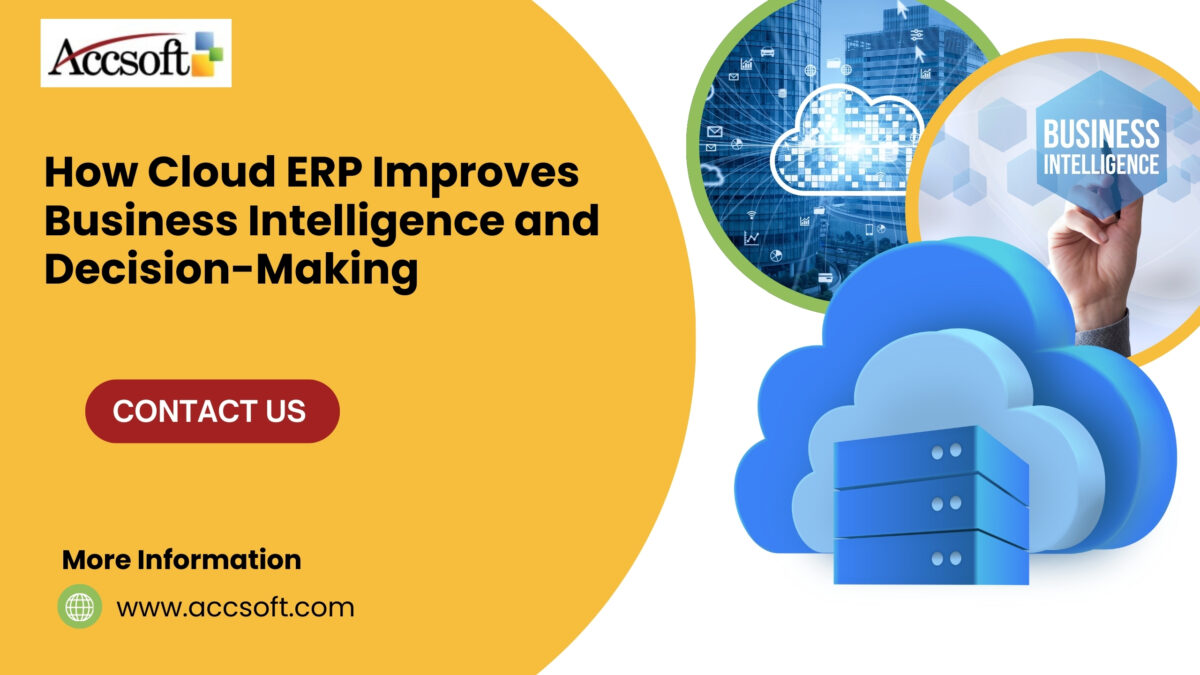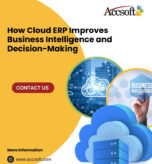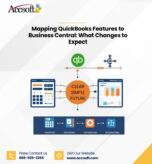
Only through real-time insight and data-driven capability within an extremely aggressive business environment can an organization today help it to be ahead in the game. Furthermore, Cloud-based ERP systems play a very vital role in business intelligence and thereby improve the process of decision-making of an organization. Advanced analytics, automation, and accessibility by the Cloud ERP system enable businesses to extract better data capabilities.
Role of Cloud ERP in Business Intelligence
BI is the gathering, processing, and analysis of business data for strategic as well as tactical decision-making. Generally, conventional ERP systems offer limited accessibility as well as scalability of data, and their integration capabilities are also not up to the mark. Cloud ERP presents a modernistic approach to BI through the following:
1. Real-time Data Access
Cloud ERP will give businesses access to real-time data from anywhere. This ensures that the decision-maker will always have the most current information rather than getting outdated or wrong reports. Organizations are in a better position to quickly respond to market changes and operational challenges with real-time insights.
2. Advanced Analytics and Reporting
Cloud ERP systems provide customizable analytics tools, dashboards, and reports. In-depth insight is given into the financial performance of the organization, the efficiency of the supply chain, customer behavior, and so on. Advanced analytics, which includes AI-driven predictive modeling, helps businesses forecast trends and optimize strategies.
3. Better Data Consolidation
The biggest problem with decision-making is data silos. There is critical information that appears within different departments, rather than being in one central place. When using cloud ERP systems, it brings all the data on finance, HR, sales, procurement, and other functions into one umbrella and has no seams to speak of. All the departments view business performance as leading to more informed decisions.
4. Scalability and Flexibility
It is very scalable, which means it can adapt easily to growth and dynamic changes in market requirements. One can add new modules, users, or functionalities without investing heavily in infrastructure that way. That helps ensure businesses continue using data insights even as expansion takes place.
5. AI and Machine Learning Capabilities
The better BI functions of AI/ML enable Modern Cloud ERP implementations. It happens because AI shows insights in a way of pattern, understands customer behavior, and automates repetitive businesses. Also, ML algorithms can enable anomaly detection in a transaction for much better risk management.
6. Increased Collaboration and Access
It facilitates teams and staff members based in distant geographies to collaborate and work effectively. Access to reports, data views, or decisions can be made available through secure access via the cloud. It does not induce time lags in the culture of the organization and supports a data-dependent culture.
7. Data Security and Compliance
Cloud ERP providers invest heavily in securing their services through encryption of access controls and even adherence to global regulations. Integrity in data is very crucial as it aids the making of reliable business decisions without breaching or causing any violation.
How Cloud ERP Changes Decision-Making
Easier Decision-Making
Cloud ERP reduces the time horizon to produce reports and insights concerning data because of the automation and processing. Management will take adequate measures without delay because of instant analyses regarding trends on the manual compilations of the data.
Precise Predictions
Predictive Analytics through Cloud ERP helps businesses ascertain fluctuations in demands, optimize levels of inventory maintained, and thereby manage cash efficiently. Precise forecasting allows such organizations to strategically invest and allocate resources, thus making wiser decisions.
Improved Agility and Responsiveness
In the dynamic market environment, business needs real-time adjustments as per dynamic conditions of the markets and Cloud ERP allows for performance analysis in real time, that may further try to look upon possible risks that can be caused and is initiated without time lag to rectify the possible risks.
Cost Optimization
The existence of cloud ERP saves companies from unwise expenditure visibility to financial and operational metrics through optimal usage process for the resourceful utilization of it. It prevents the leakage of revenue, meaning an increase in profitability.
Conclusion
Cloud ERP has brought a revolution to Business Intelligence and decision-making with real-time data, advanced analytics, seamless integration, and AI-driven insights. With the adoption of Cloud ERP, businesses can make fast, strategic, and better-informed decisions that lead to growth and competitiveness. In the fast-changing world of digital business, investing in a Cloud ERP system is a necessary step to a data-driven future.
Are you ready to take your business intelligence to the next level with Cloud ERP? Contact us today to learn more about implementing the right solution for your organization.







